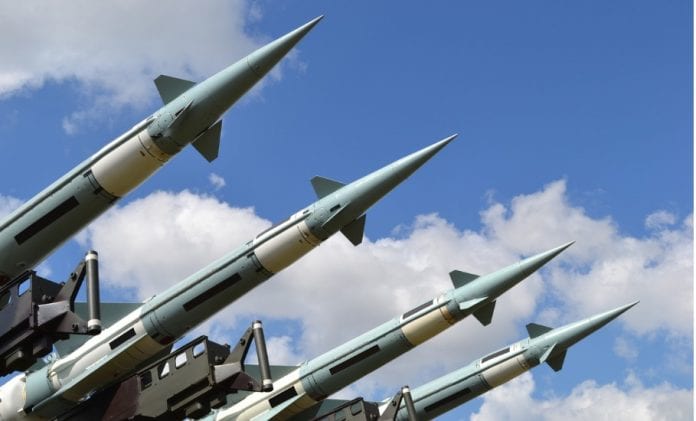India Expanded Atomic Arms stockpile in 2019
India expanded Atomic arms stockpile in 2019 yet has fewer weapons than China, Pak: SIPRI report. India improved its atomic armory by adding 10 additional weapons to the store in the course of the most recent year, however, the nation has a less number of warheads than China and Pakistan, as indicated by a report released by a main Swedish research organization on Monday.
The Stockholm International Peace Research Institute(SIPRI) states in its report that the two India and China expanded their atomic munitions stockpiles in 2019. While China has an aggregate of 320 warheads in its arms stockpile, Pakistan and India are evaluated to have 160 and 150 weapons, individually.
“China is in a noteworthy modernization of its atomic armory. It is building up a purported atomic group of three just because, comprised of new land-and ocean-based rockets and atomic able airplane,” the report cautioned.
“India and Pakistan are gradually expanding the size and assorted variety of their atomic powers, while North Korea keeps on organizing its military atomic program as a central component of its national security system,” it said.
In its 2019 report, SIPRI had said that China’s atomic munitions stockpile contained 290 warheads while India’s had 130-140. Pakistan’s atomic weapons store was determined at 150-160, a number that remaining parts the equivalent in the current year’s evaluation.
As per the report, the US best the table with 5,800 warheads, trailed by Russia with 6,375 and the UK with 215 warheads. The figures have been refreshed till January 2020.
“The nine atomic equipped states – the US, Russia, the UK, France, China, India, Pakistan, Israel, and North Korea together had an expected 13,400 atomic weapons toward the beginning of 2020. This denoted a lessening from the 13,865 atomic weapons that SIPRI assessed these states had toward the start of 2019,” the report said.
“The lessening in the general number of atomic weapons on the planet in 2019 was to a great extent because of the disassembly of resigned atomic weapons by Russia and the USA which together despite everything have more than 90 percent of worldwide atomic weapons,” it said.
The SIPRI Yearbook, which surveys the current condition of combat hardware, demobilization, and worldwide security, said that in spite of a general abatement in the number of atomic warheads, atomic forces keep on modernizing their munitions stockpiles, cautioning that pressures were rising and the viewpoint for arms control was “somber”.
About China, the report said Beijing presently openly shows its atomic powers more much of the time than previously however discharges little data about power numbers or future improvement plans.
“The legislatures of India and Pakistan offer expressions about a portion of their rocket tests yet give no data about the status or size of their arms stockpiles,” it said.
“Russia and the USA have broad and costly projects in progress to supplant and modernize their atomic warheads, rocket and airplane conveyance frameworks, and atomic weapon creation offices. The two nations have likewise given new or extended jobs to atomic weapons in their military plans and teachings, which denotes a noteworthy inversion of the post-cold war pattern towards the steady underestimation of atomic weapons,” it included.
The 51st version of the Yearbook uncovers a proceeding with weakening in the conditions for worldwide steadiness. This pattern is reflected in, in addition to other things, an unfurling emergency of atomic arms control that endured further mishaps in 2019, it said in an announcement.
“In this season of ever-expanding geopolitical pressures, the nonattendance of satisfactory measures to screen atomic munitions stockpiles and to forestall the expansion of atomic weapons and materials is an especially stressing advancement,” Shannon Kile, Chief of SIPRI’s Atomic Demilitarization, Arms Control, and Non-multiplication Program, said in the announcement.
Notwithstanding its point by point inclusion of atomic arms control and non-multiplication issues, the most recent release of the Yearbook additionally remembers knowledge for improvements in regular arms control in 2019; territorial reviews of outfitted clashes, and peacemaking.
It likewise gives inside and out information and conversation on military consumption, universal arms moves and arms creation; and far-reaching inclusion of endeavors to counter substance and organic security dangers.




